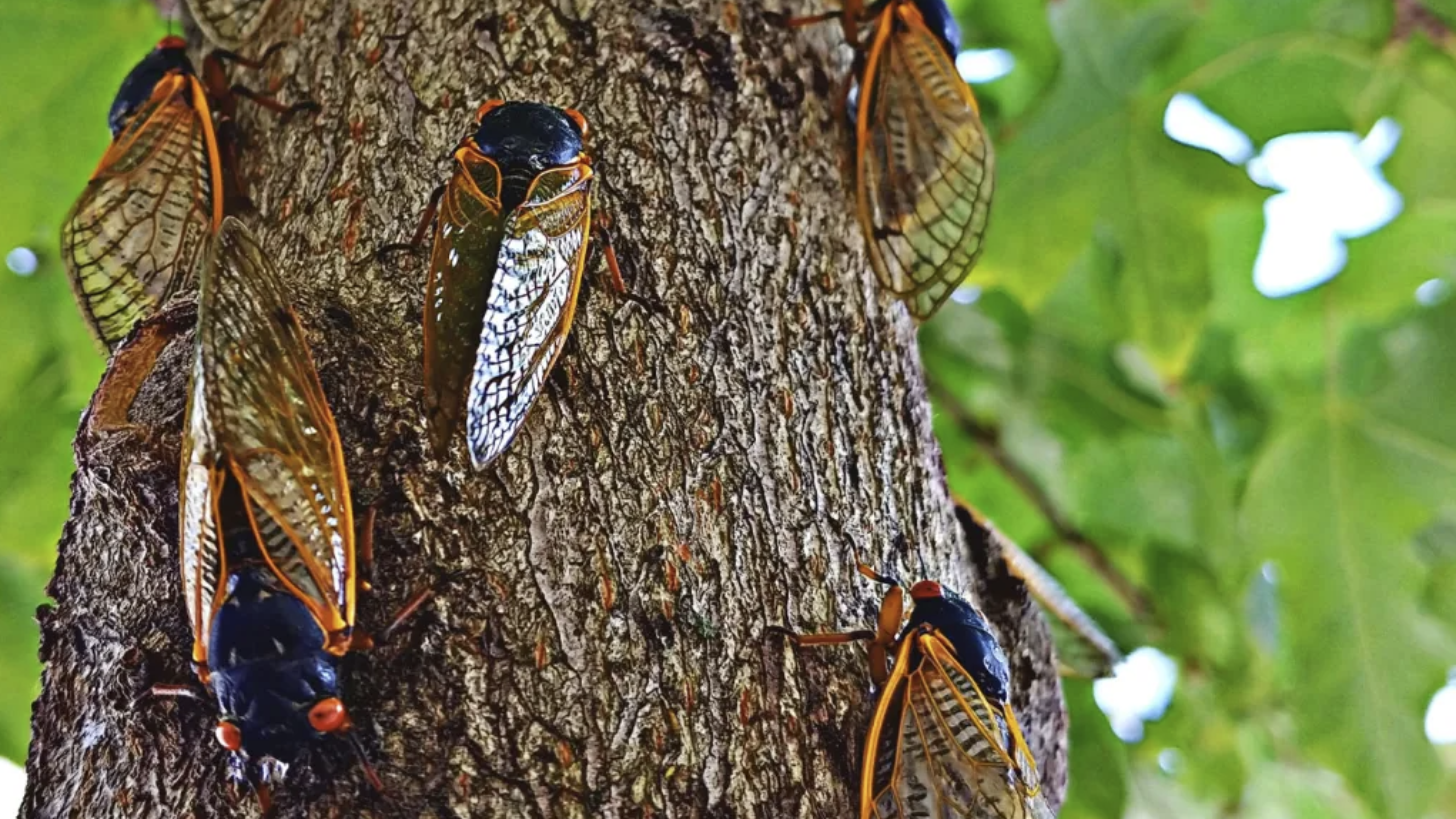Cicada Invasion 2024: USA
Prepare For the Cicadapocalypse
In a matter of weeks, shining red-eyed insects will emerge from deep underground after a decade-long slumber. It will be an epic battle of the bands, the likes of which hasn’t been seen since 1803 - and won’t happen again until 2245. It’s a rare emergence that some are referring to as the “cicadapocalypse”.
Billions of cicadas are set to surface this spring as two different broods - one that appears every 13 years, and another every 17 years - emerge simultaneously. The 13-year group, known as Brood XIX, or the Great Southern Brood, is the largest periodical cicada brood, stretching across the southeastern United States. The Northern Illinois Brood, or Brood XIII, emerges every 17 years. Though the idea of a “cicadapocalypse” may seem foreboding, experts predict that the two broods won’t significantly overlap, and the bugs themselves, while loud and numerous, are harmless.

When and Where Will the Cicadas Emerge?
This spring’s periodical cicadas will make their appearance when the soil temperature 8 inches (20 centimeters) deep reaches 64 degrees Fahrenheit (about 18 degrees Celsius). It will likely happen sometime in mid-May. The individual bugs’ adult life cycles are just a few weeks, but their emergence will be staggered, so there will be about six weeks of cicadas. Parts of the United States Midwest and Southeast are due for cicadas this spring.
Cicadas Are Harmless
While the sheer volume of insects, along with their distinctive jackhammer-loud sounds and bright red eyes, might give some people pause, cicadas are harmless. They don’t pose a risk to garden plants. However, if you have young trees, cicadas could potentially damage them when the insects cut into branches to lay their eggs. You can mitigate this harm by covering the trees with cicada nets. Cicadas won’t bite or sting you or your pets. If your dog eats a cicada or two, they’ll be just fine.
Dogs aren’t the only ones tempted to nosh on cicadas; people have eaten them for thousands of years. They have kind of a natural, sweet nut flavor. (If you’re allergic to shellfish, you should avoid eating cicadas - a protein in shellfish that’s tied to allergies is also present in many insects.)

Expect an abundance of cicada exoskeletons to be covering your trees and shrubs. You should expect to hear lots of noise. The insects are likeliest to be in wooded areas near water. Prepare for a month-and-a-half period that will be jam-packed with loud singing, mating and then dying, as if you're witness to the most macabre opera you’ve ever seen.
